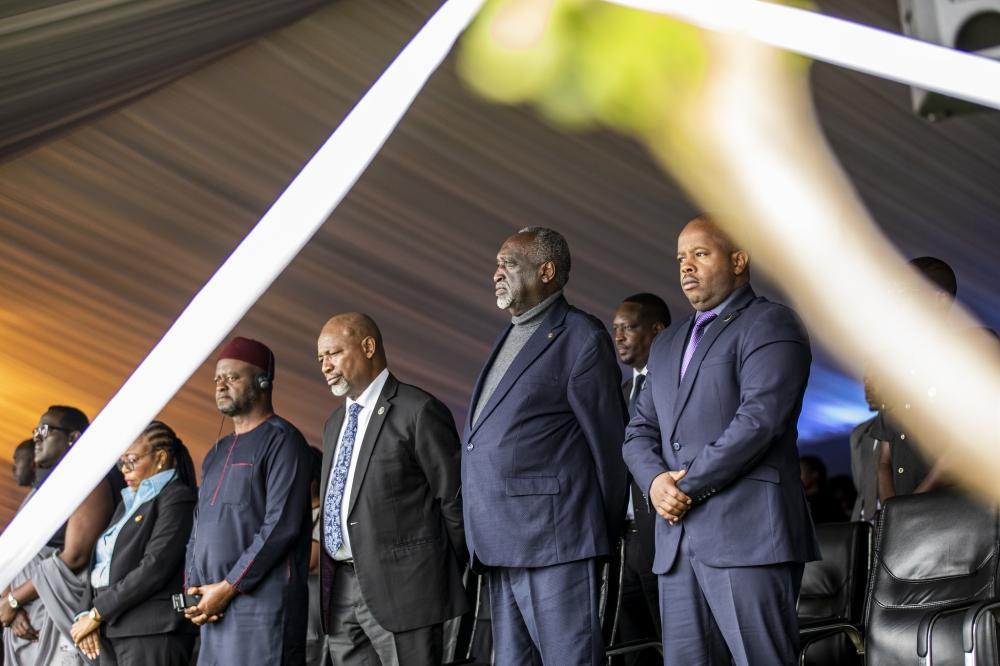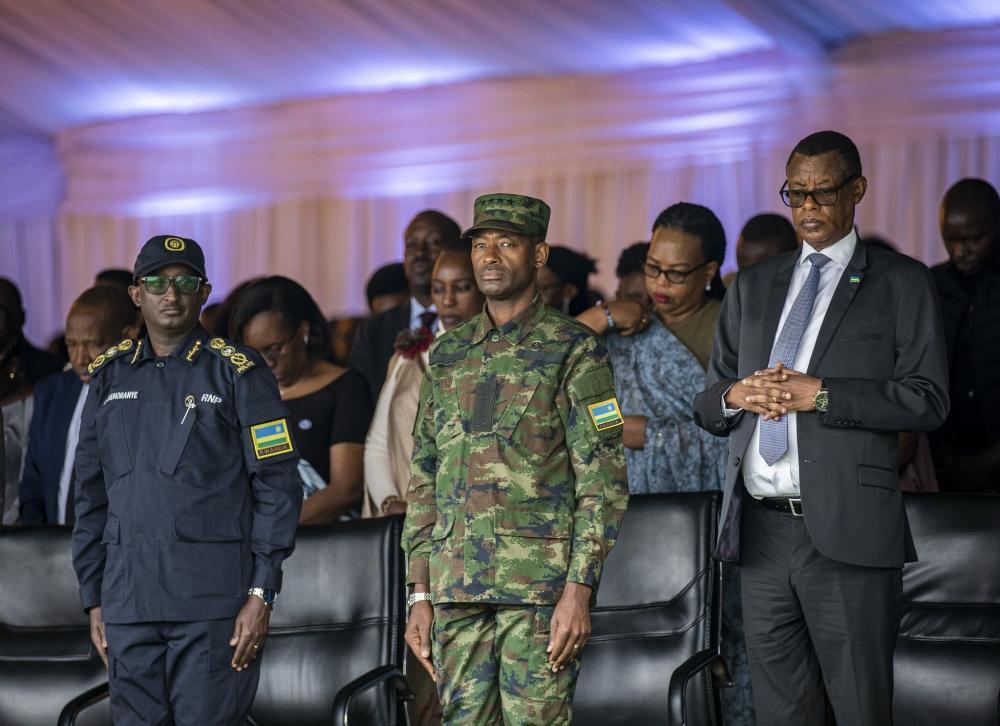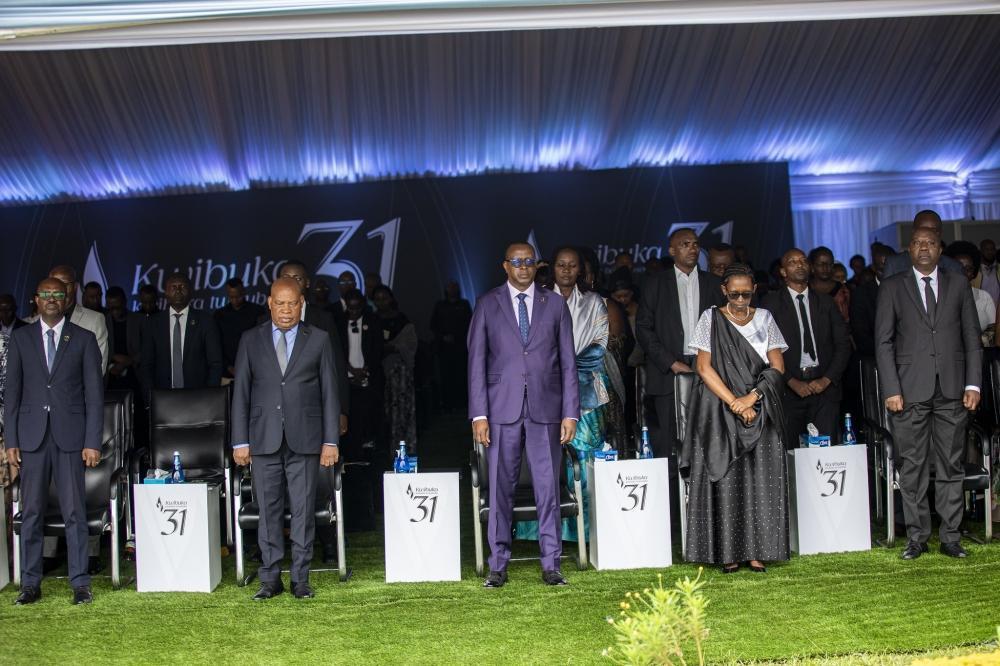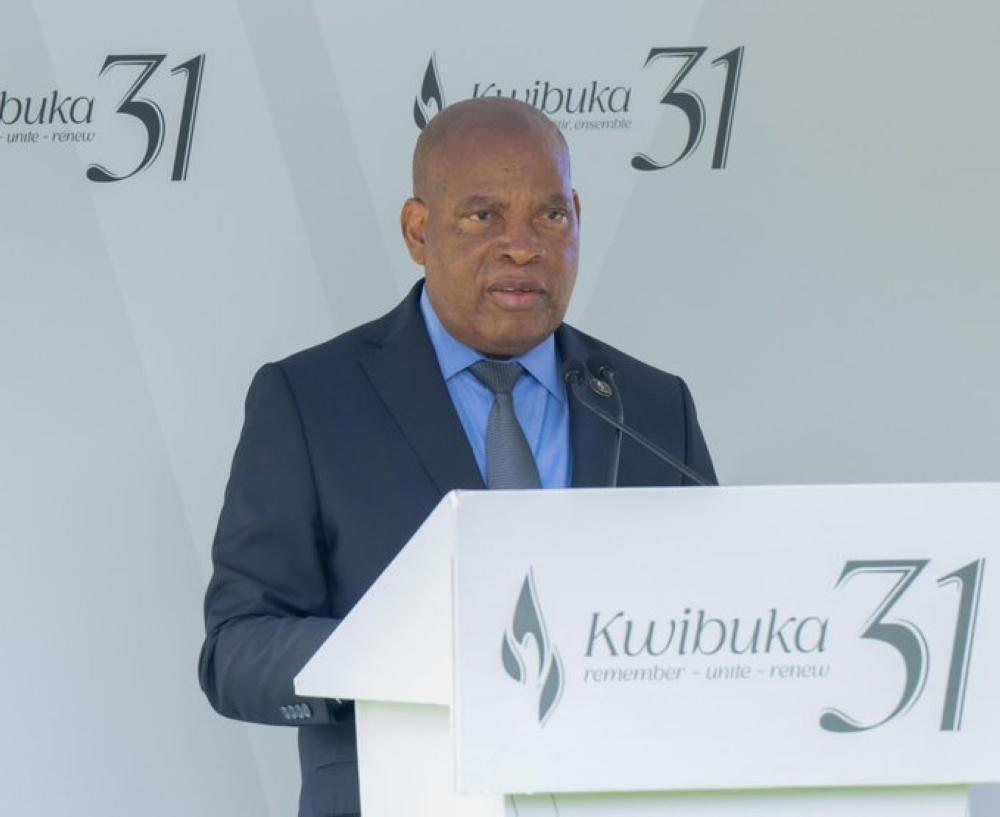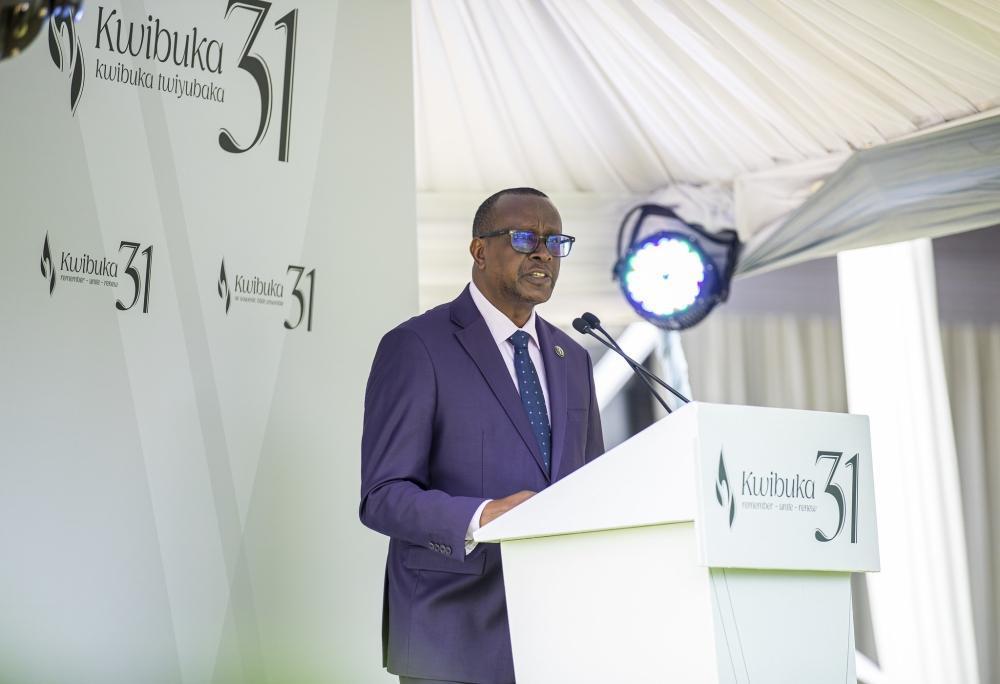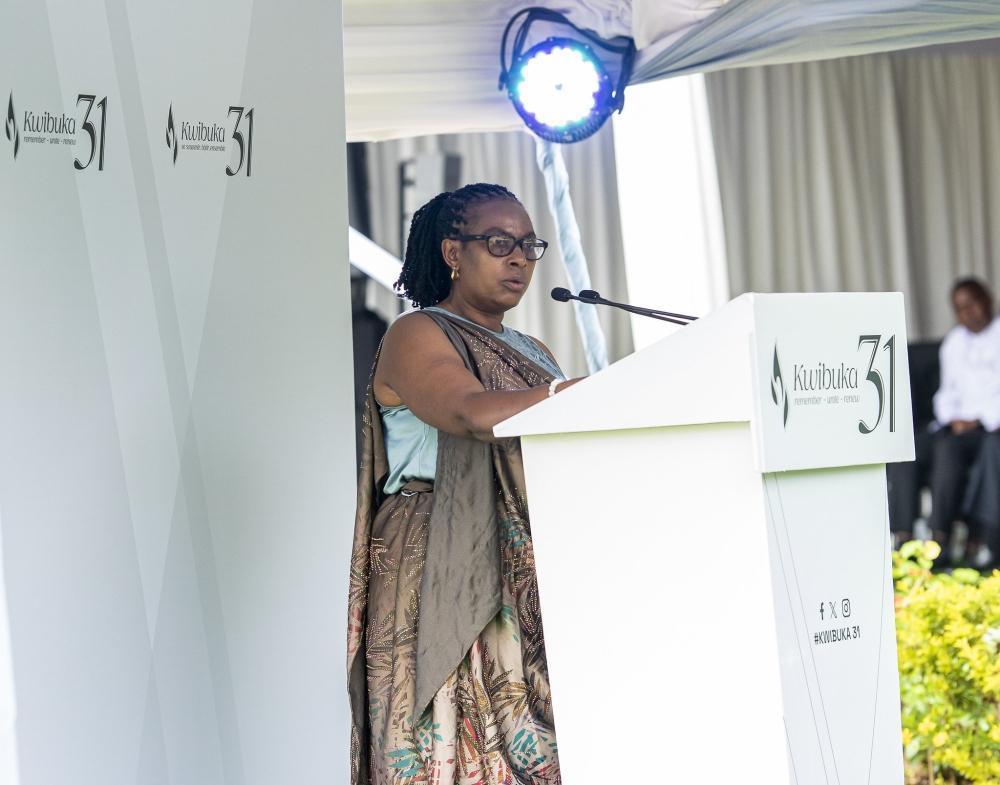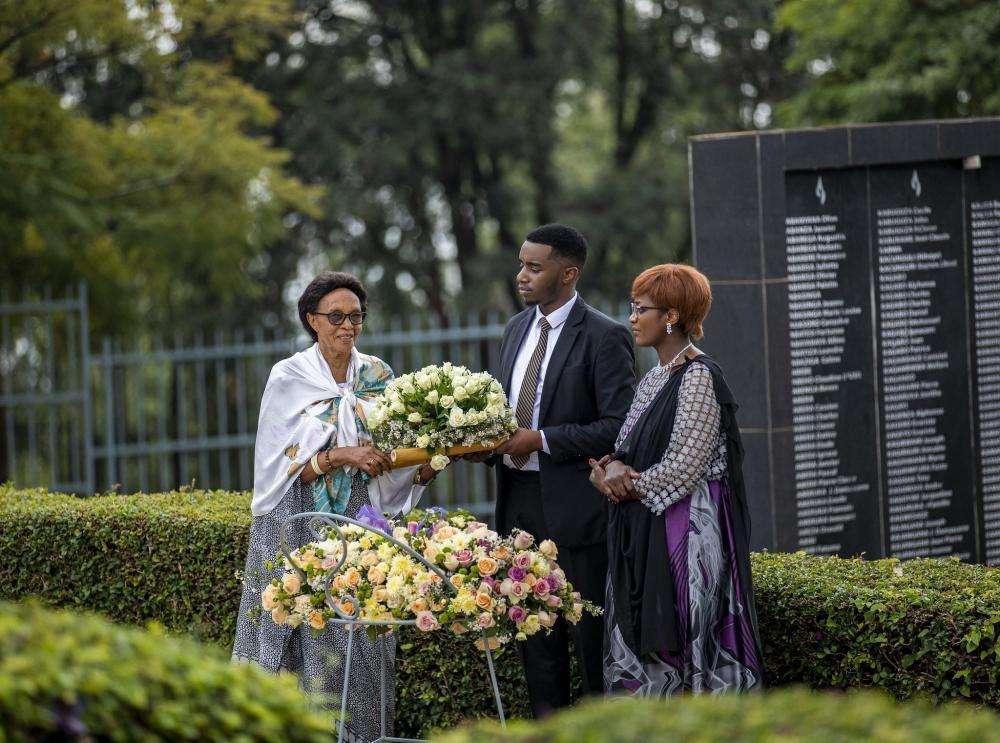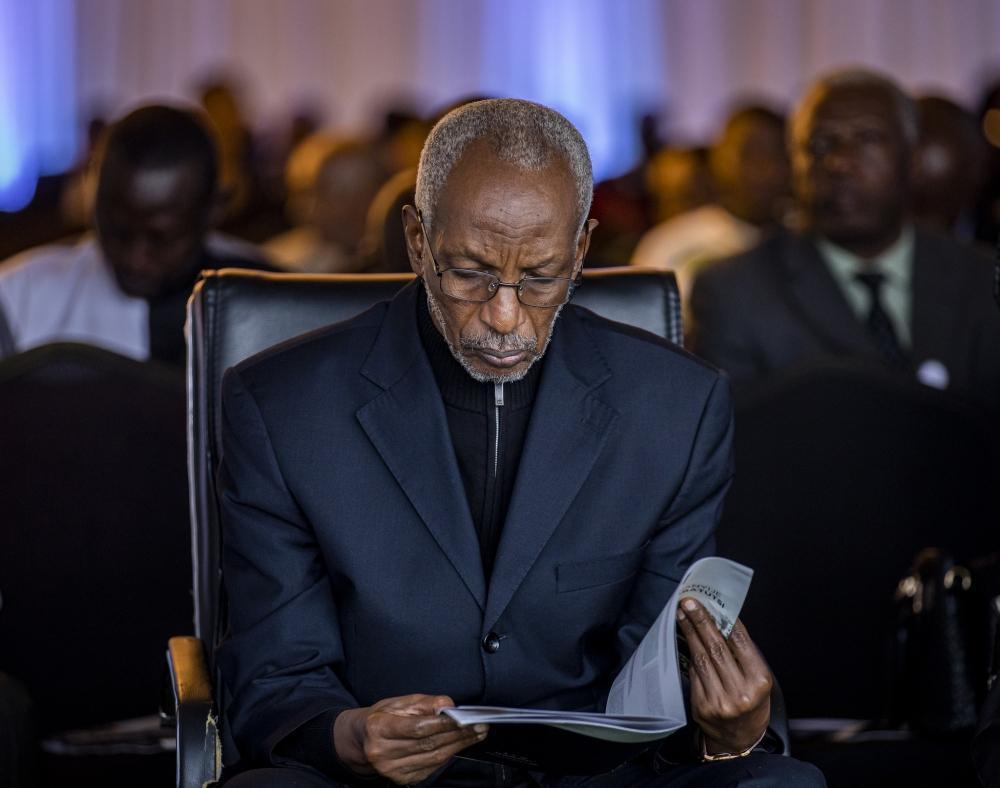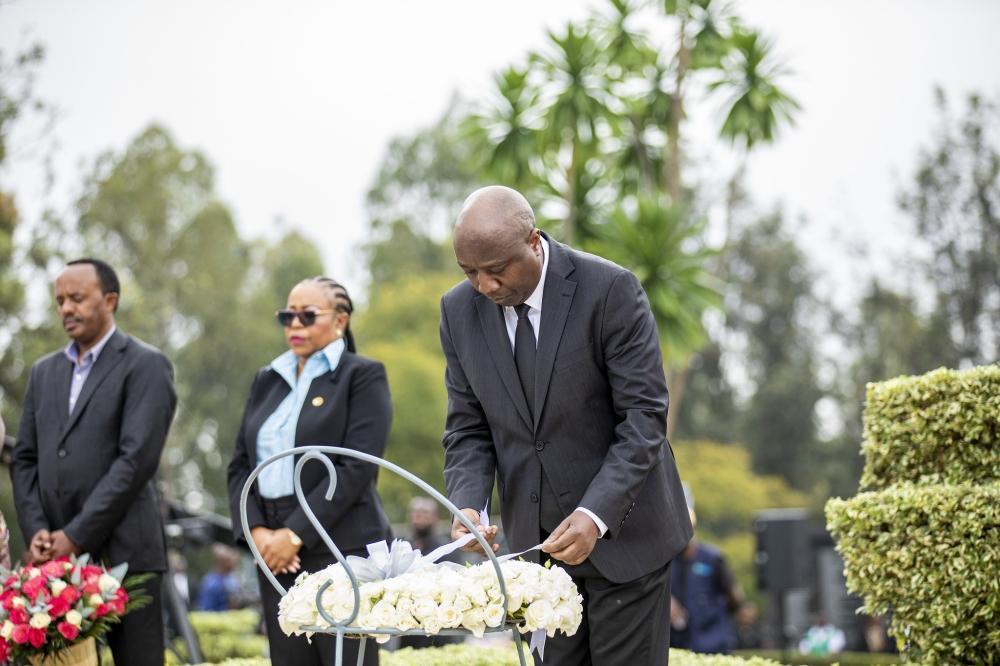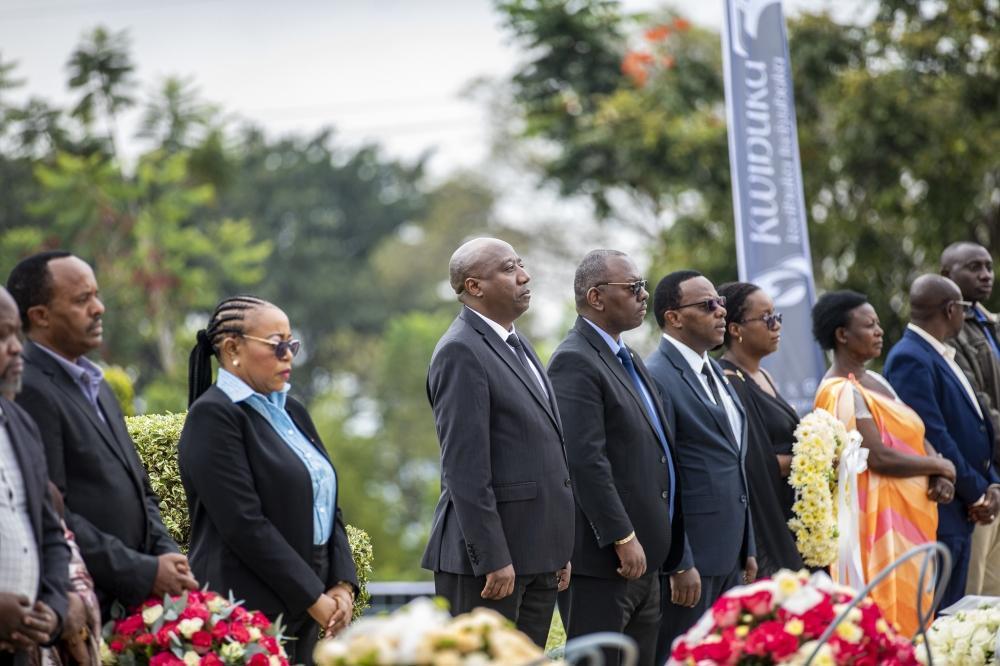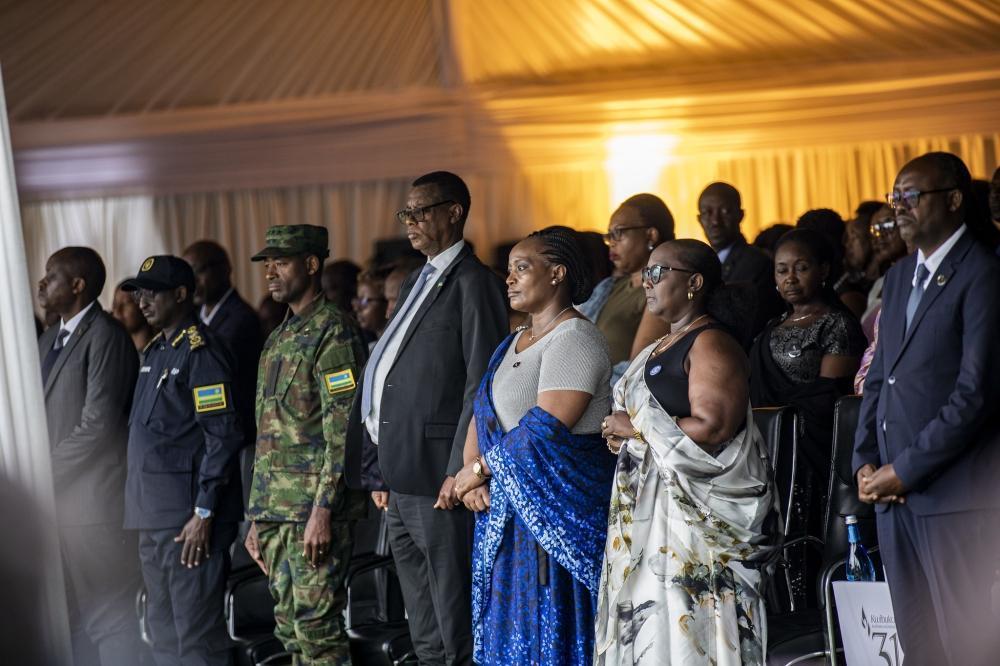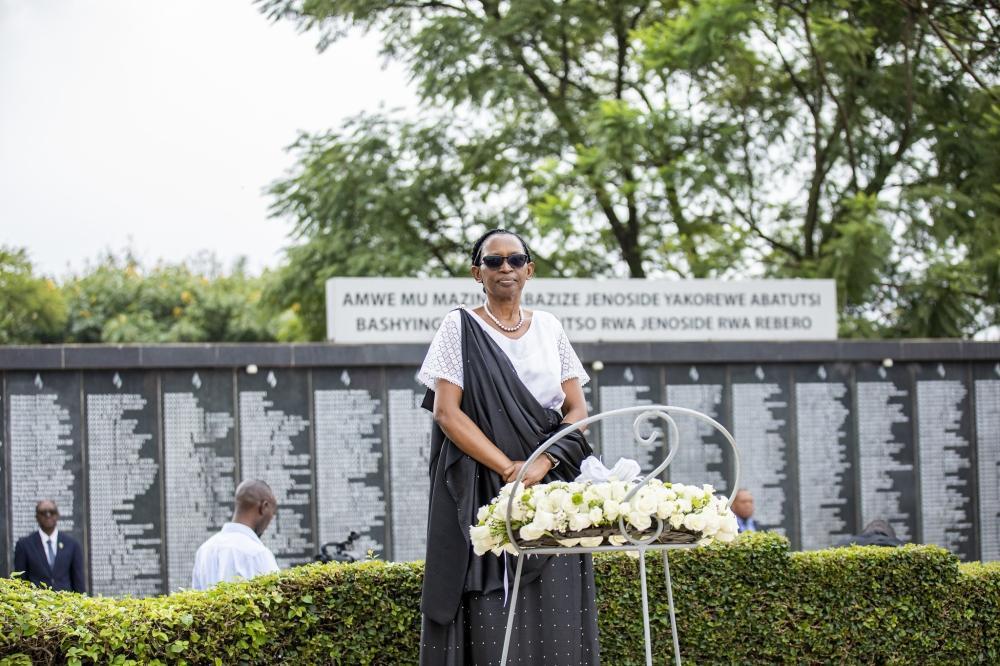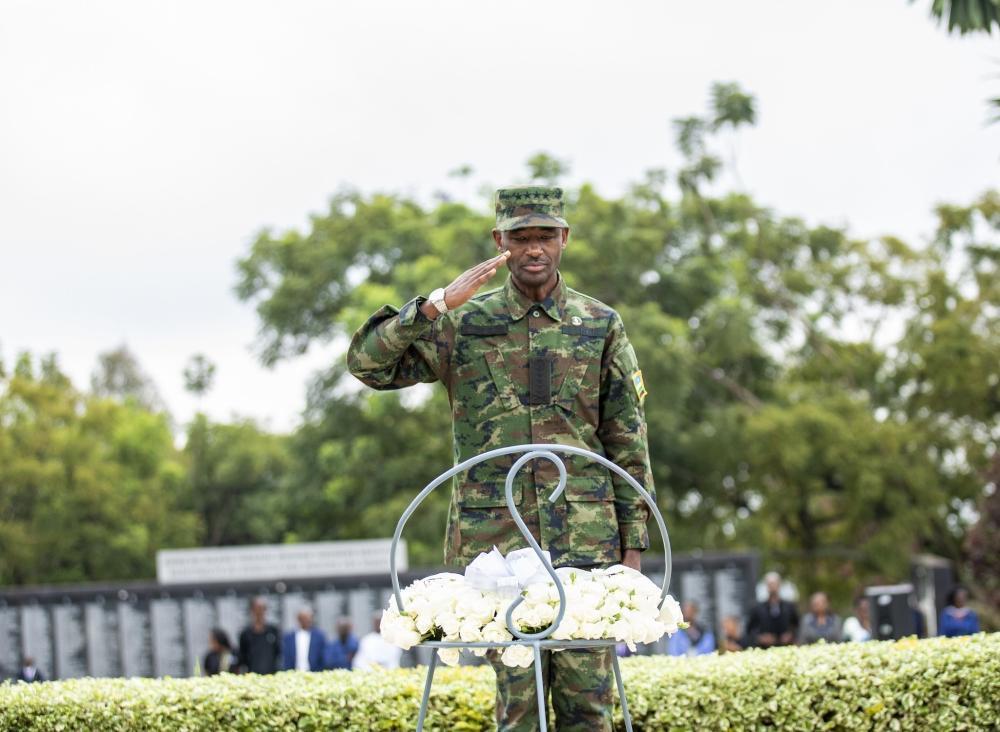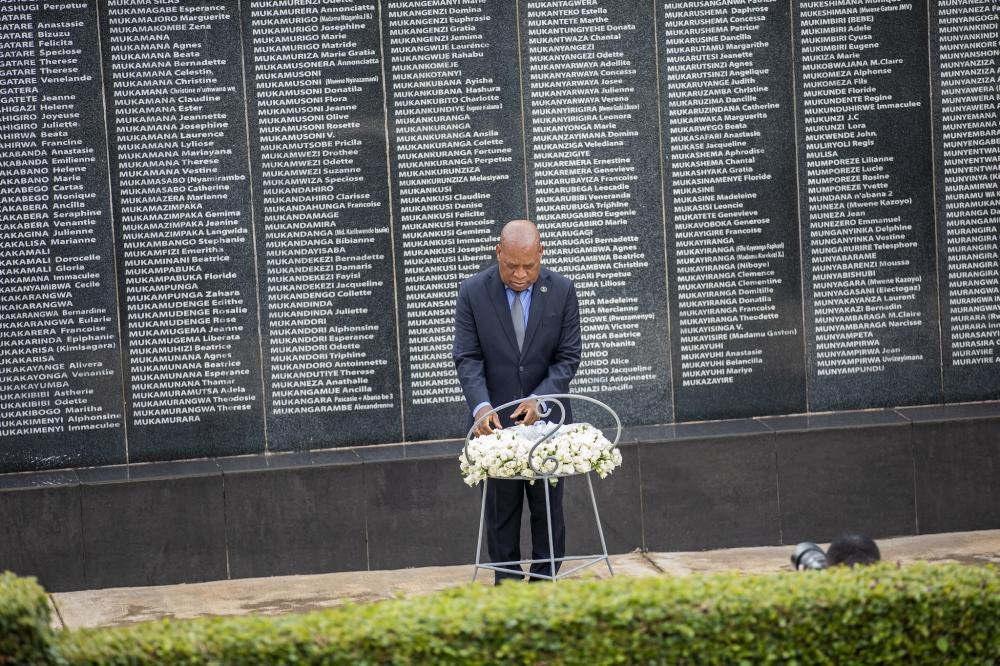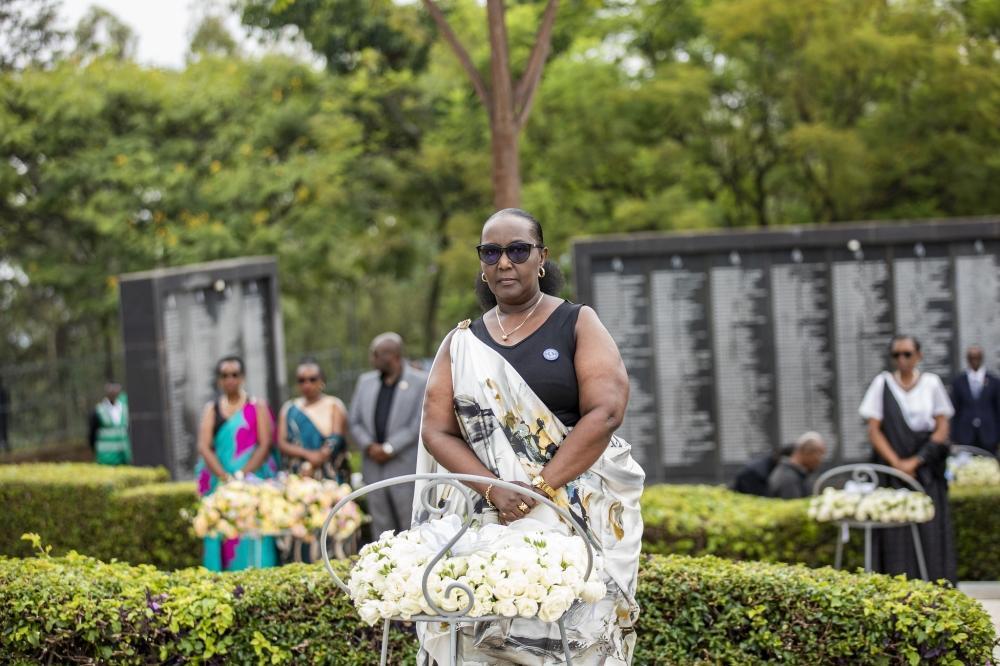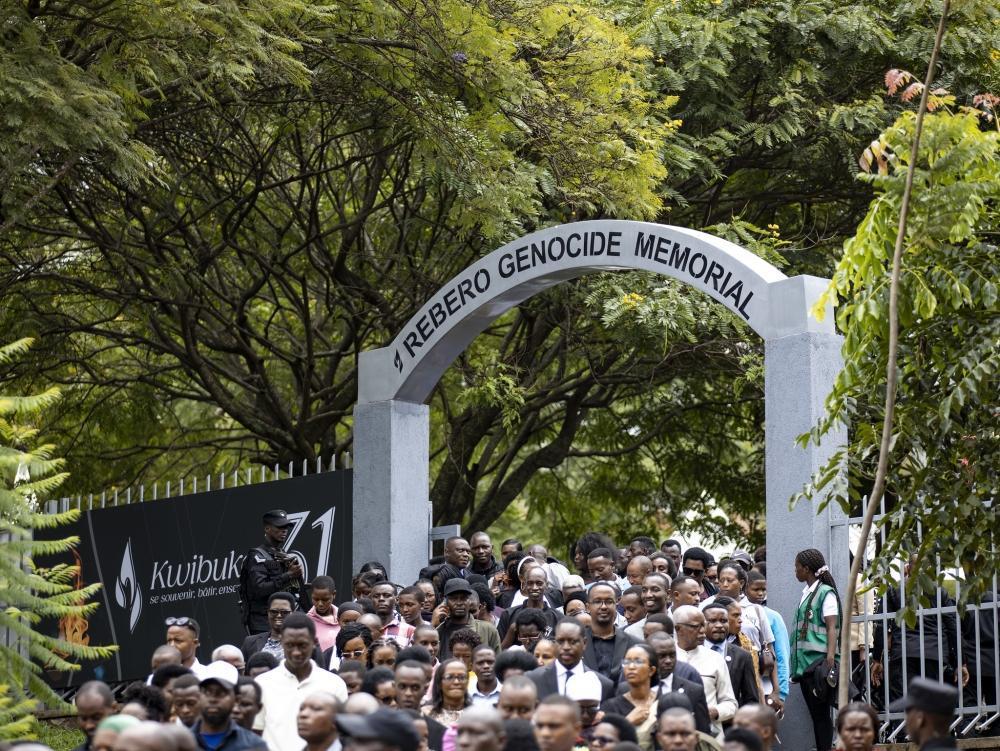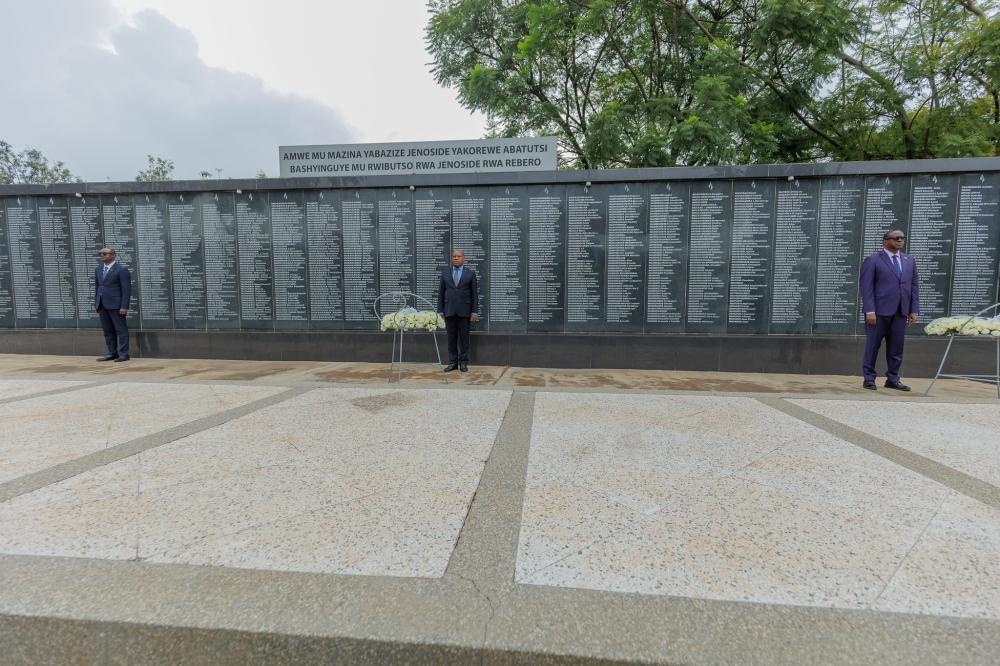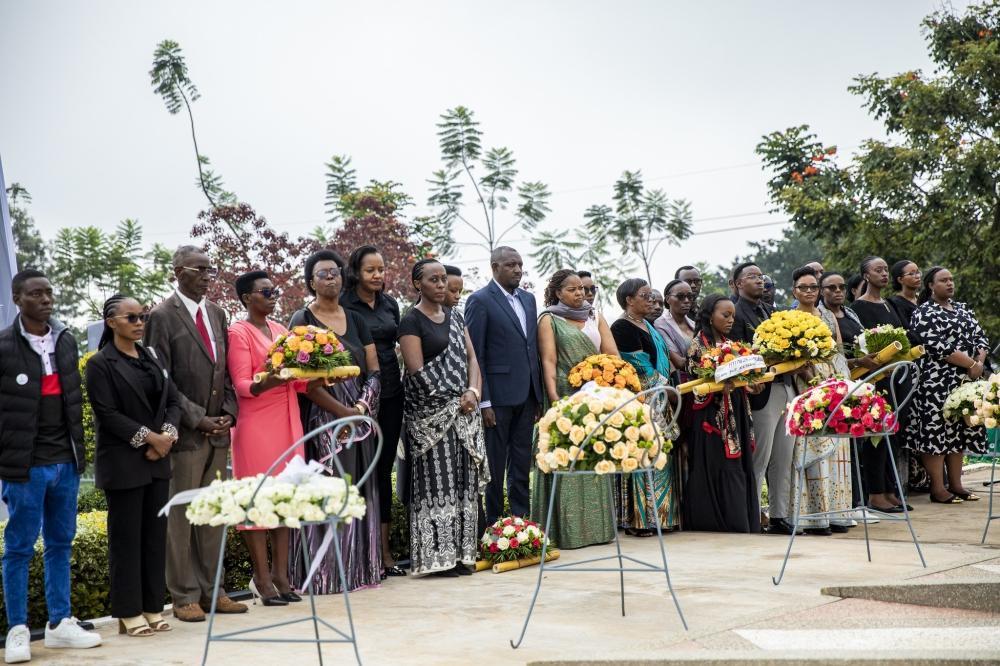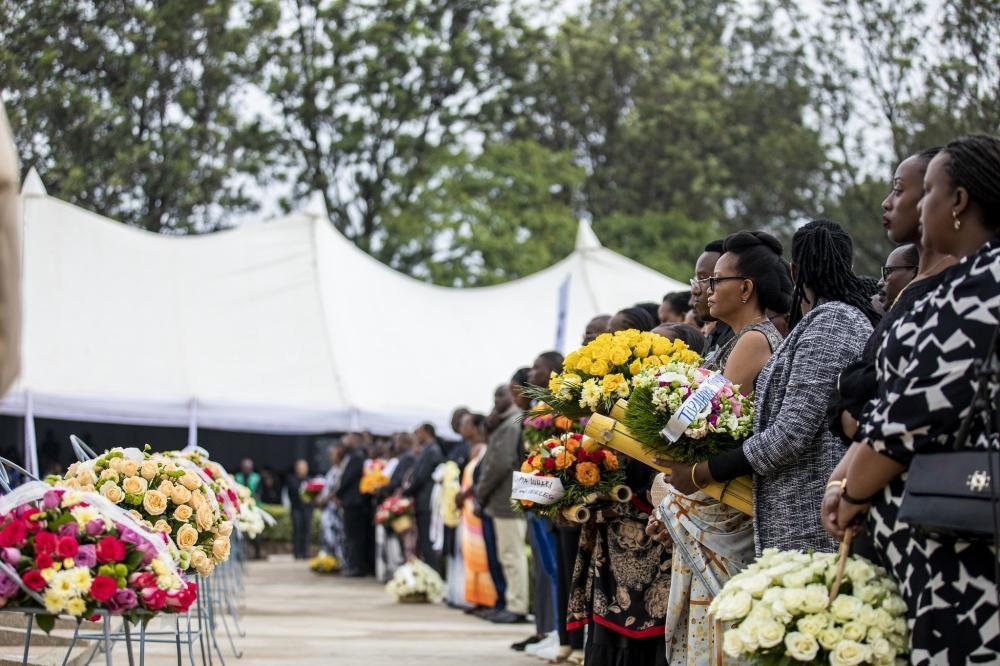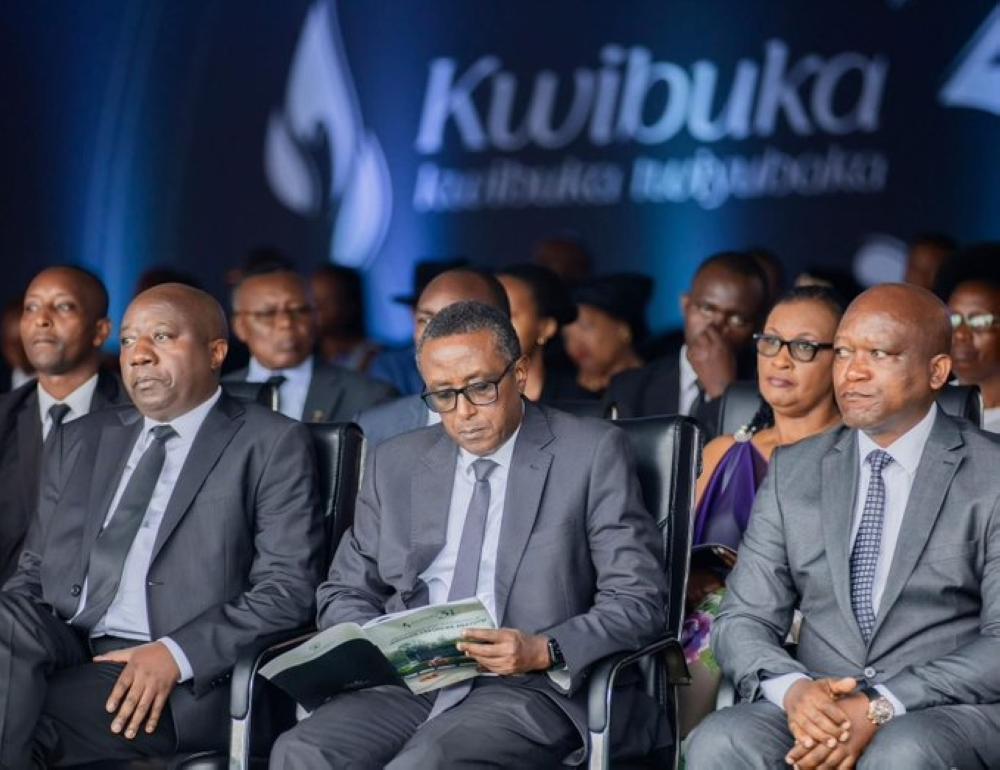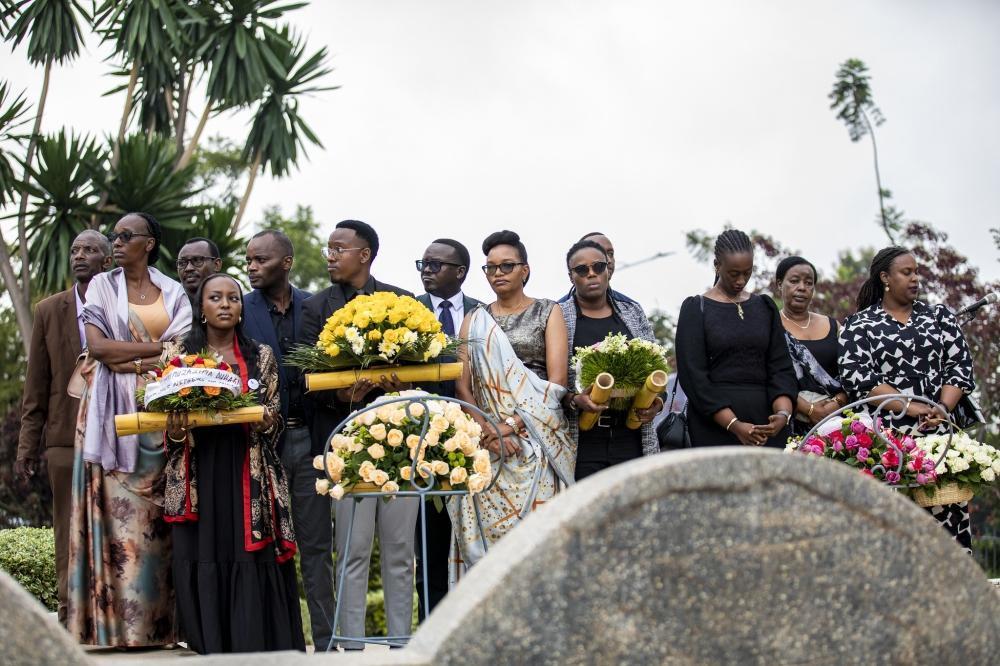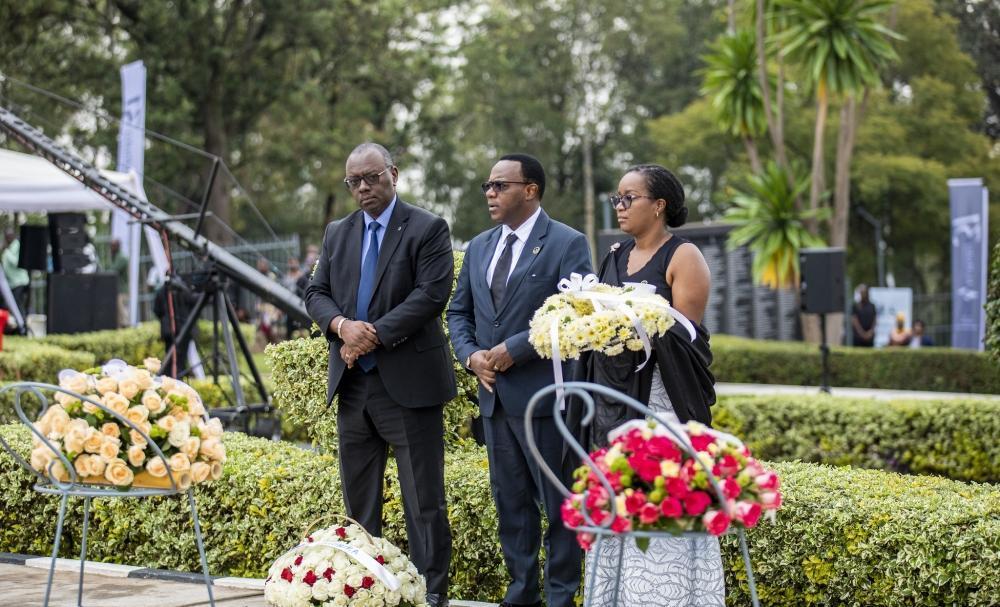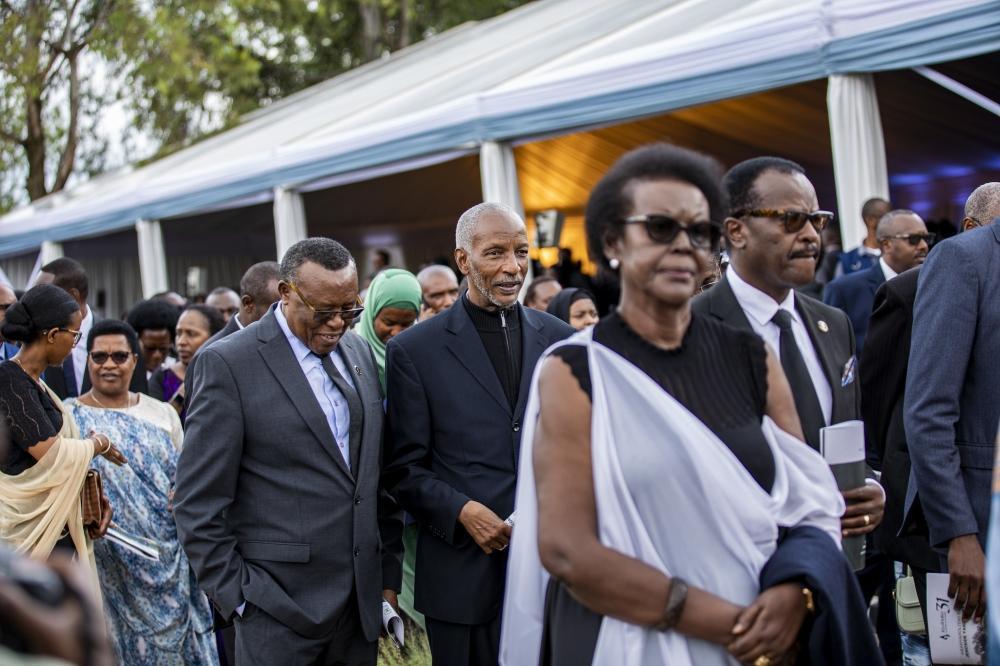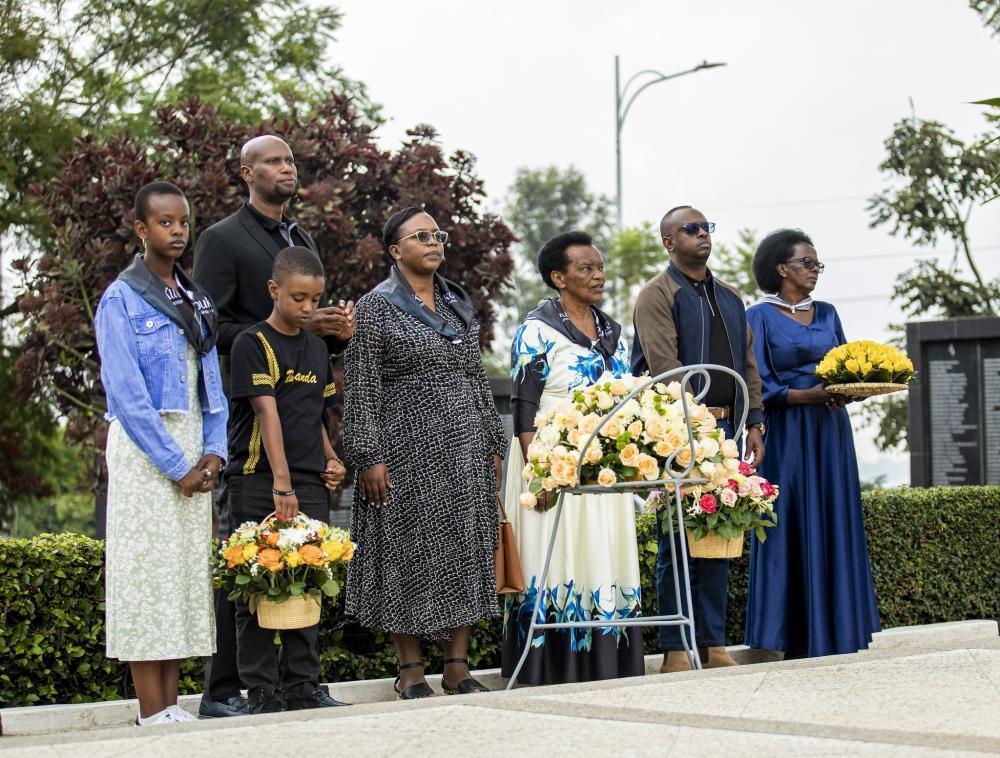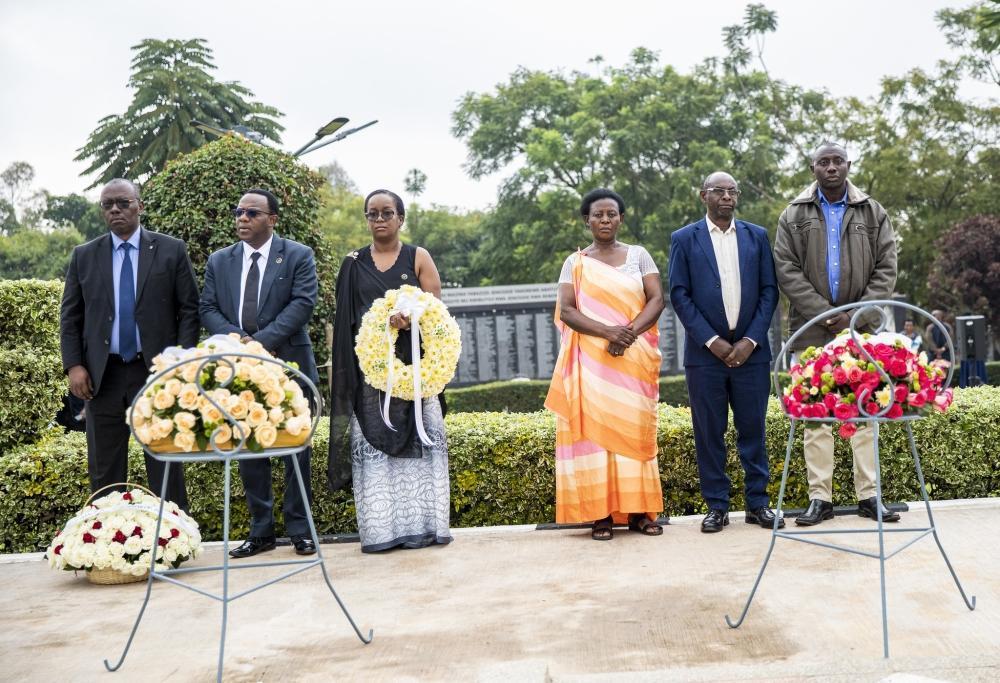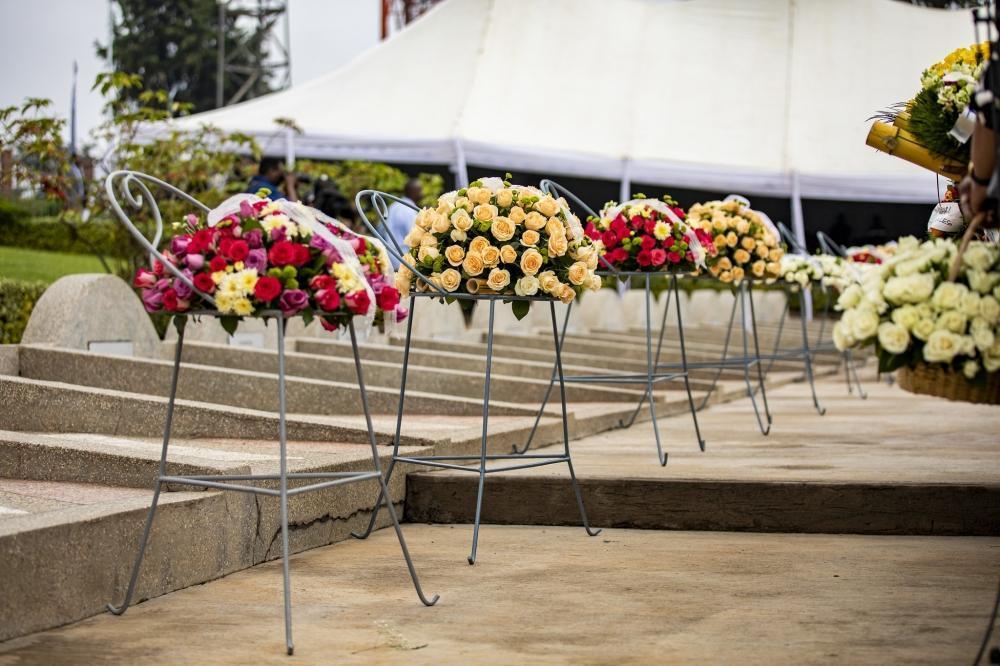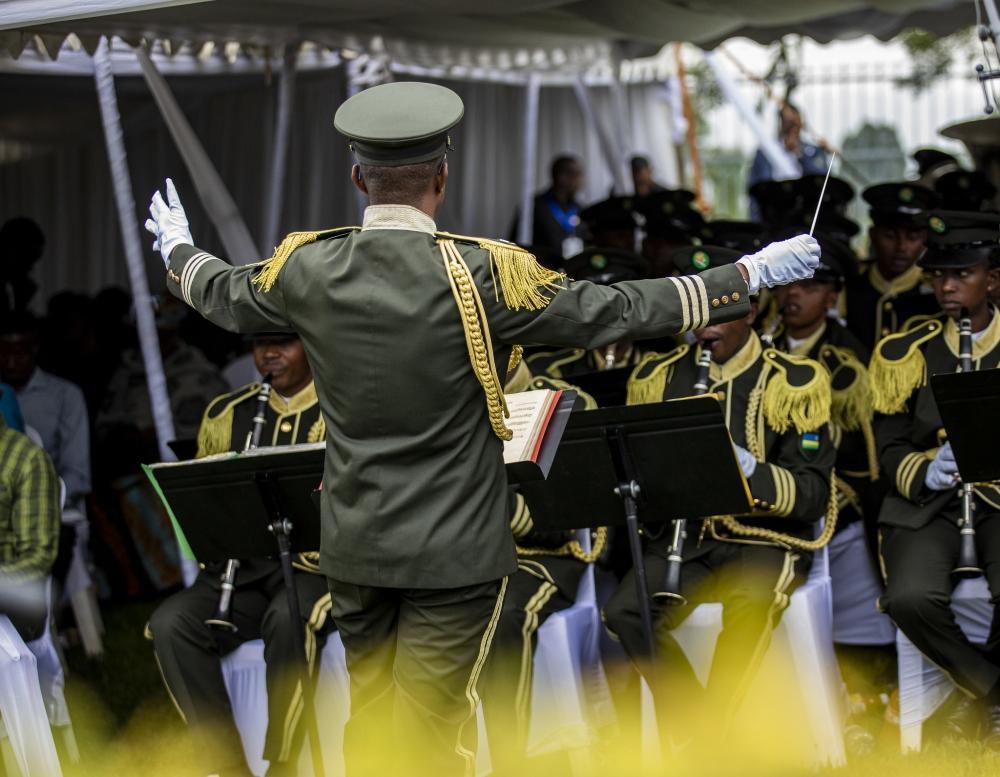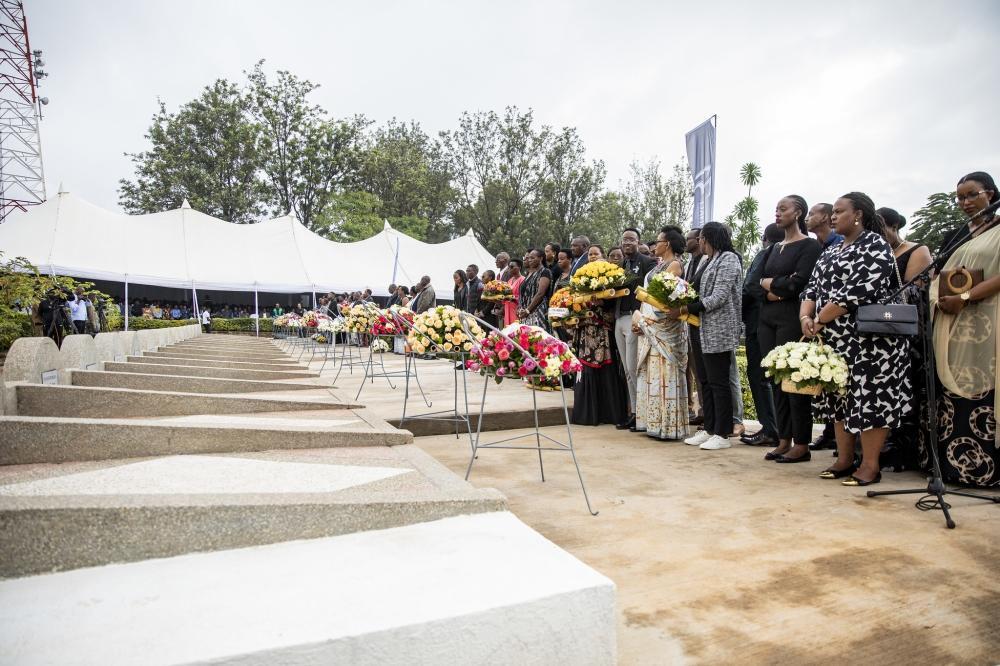Africa-Press – Rwanda. Politicians should reflect on their role in the fight against genocide ideology from different elements in the country, across borders, and on the international scene, said Senate President François-Xavier Kalinda.
He made the remarks in a ceremony during which mourners paid tribute to politicians killed during the 1994 Genocide against the Tutsi. The politicians were honored at Rebero Genocide Memorial by their families, government officials and representatives of political organisations, who laid wreaths on their tombs.
Rwanda National Police IGP Namuhoranye, Rwanda Defence Force Chief of Defence Staff, Gen Mubarakh Muganga, and the Minister of State for Regional Cooperation, Gen (Rtd) James Kabarebe observe a moment of silence.
The event attended by the Prime Minister Edouard Ngirente alongside other cabinet members, senators, members of the security organs and civil society, also marked the end of the 31st commemoration week.
The genocide memorial located in Kicukiro District is a resting place of 14,000 victims of the Genocide against the Tutsi.
The politicians who were remembered, many of them members of the Liberal Party (PL) or Social Democratic Party (PSD), were reformists who called for peace and fought against divisionism and violence against Tutsi.
They pushed for dialogue in support of the Arusha Peace Accord, and condemned hate ideology that was propagated by the regime of late President Juvénal Habyarimana.
Senior government officials observe a moment of silence in honour of the victims at Rebero Genocide Memorial on Sunday, April 13. All photos by Dan Gatsinzi
Many of them were killed at the onset of the Genocide against the Tutsi.
Kalinda condemned politicians who played a role in the planning, mobiliziation, and support of the execution of the Genocide that claimed more than one million lives in just 100 days.
He noted that the perpetrators fled to different countries, including neighbouring DR Congo, and have not ceased to spread genocide ideology and pose security threat on Rwanda, with the support of the Congolese leadership.
“Remembering the politicians who were killed because they stood against the extermination plan against the Tutsi is a covenant for every Rwandan. Honouring them is giving them dignity they were ripped off and valuing their ideas of building a unified Rwanda that stands against violence and ethnic discrimination.”
Thirty-one years later, Kalinda said there are increasing cases of genocide ideology and denial, including attacks on survivors who are killed or have their properties destoyed.
François-Xavier Kalinda, Senate President delivers his remarks at the event
This, the Senate President said, should compel politicians to question themselves about their efforts in fighting genocide ideology and denialism in its different forms.
Kalinda added that understanding this history is crucial in the journey of national unity, democracy, and governance based on Rwandan values.
At the event, Jean-Damascène Bizimana, the Minister of National Unity and Civic Engagement, detailed the oppressive, divisive, and extremist mindset and actions that characterized politicians of the genocidal regime, noting that current and aspiring politicians should beware of such history and learn from it to commit to a different path of governance.
Jean-Damascène Bizimana, the Minister of National Unity and Civic Engagement, addresses mourners at Rebero
“Currently, there are so-called politicians, some of whom were politicians in the genocidal regime, who spread lies about Rwanda’s history because they now know they can no longer deny the fact that the Genocide occurred as it is internationally recognized. They focus on distorting facts,” Bizimana said.
One of these politicians, Bizimana said, is Jean-Marie Vianney Ndagijimana who claims that during the Genocide, the Tutsi were less than one million in the country.
He cited a 2000 survey by the local government which indicated that at least 1,074, 047 tutsi killed with their identities known, and the number later increased as new information was provided from courts and other researches.
However, Bizimana noted that a genocide is not a matter of the number of people killed but a planned and executed killing targeting a faction of people based on their ethnicity, even if they are two people.
The same Ndagijimana was a character of corruption and theft at the time he was ambassador to France, where he committed theft against the then Rwandan government, along his secretaries.
Bizimana also talked about the planning of the Genocide from years before the 1994 and the discrimination and hate speech that were propagated targeting Tutsi and some Hutu that opposed the extremist plan. He pointed out different occasions on which former President Juvénal Habyarima led the planning and mobilization for the Genocide.
Christine Mukabunani, Spokesperson of National Consultative Forum of Political Organisations (NFPO)
Christine Mukabunani, Spokesperson of National Consultative Forum of Political Organisations (NFPO), said that they honor the politicians killed during the Genocide and commit to lead with good governance that aims at national development.
She added that this is also an occasion to reflect on the colonial push for ethnic divisionism and hatred that was further demonstrated throughout the first and second republics.
“Although we were unfortunate with bad leadership that planned and executed the Genocide that sought to exterminate the Tutsi, we are thankful that the country was saved by Rwandan young people who loved it,” Mukabunani said.
From this, she said, people draw strength and commit to protect what has been achieved in rebuilding the country, honouring those that sacrificed a lot to make Rwanda great again, mainly soldiers of RPA, the then military wing of RPF-Inkotanyi.
Relatives of the victims of the Genocide against the Tutsi lay wreaths to pay respect to them at Rebero Genocide Memorial.
She noted that current and future politicians have a responsibility to educate Rwandans about social cohesion, developing the country and contributing to social welfare through unity and fighting against anyone who would want to regress the country back into the tragic history.
Mukabunani highlighted that this unity was demonstrated during the 2024 elections which were prepared and conducted peacefully. That wasn’t the case during the first and second republics, she told young members of political parties.
“We have made a choice to have a political stance of shared leadership, which prioritized citizens’ wellbeing and development. We don’t need any other democracy that is not aligned with our history.”
François Ngarambe, the Chairman of the Chancellery for Heroes, National Orders and Decorations of Honor (CHENO).
Prime Minister Edouard Ngirente lays a wreath in honour of victims at Rebero Genocide Memorial on Sunday, April 13. All photos by Dan Gatsinzi
Prime Minister and other politicians at the event at Rebero
Mourners observing a moment of silence
Speaker of Lower Chamber of Parliament Gertrude Kazarwa pays tribute to the victims
Rwanda Defence Force Chief of Defence Staff, Gen Mubarakh Muganga pays tribute to the victims at Rebero Genocide Memorial
François-Xavier Kalinda, Senate President lays a wreath at the memorial
Chief Justice Domitilla Mukantaganzwa honouring the victims at Rebero Genocide Memorial
Thousands of mourners turned up to remember the victims at Rebero
IBUKA President, François-Xavier Kalinda, Senate President, and Jean-Damascène Bizimana, the Minister of National Unity and Civic Engagement.
Prime Minister Edouard Ngirente, Minister of Interior, Vincent Biruta and Minister of Defence, Juvenal Marizamunda during the commemoration event at Rebero Genocide Memorial in Kigali on April 13. All photos by Dan Gatsinzi
Family members of the victims at the commemoration event at Rebero
For More News And Analysis About Rwanda Follow Africa-Press

